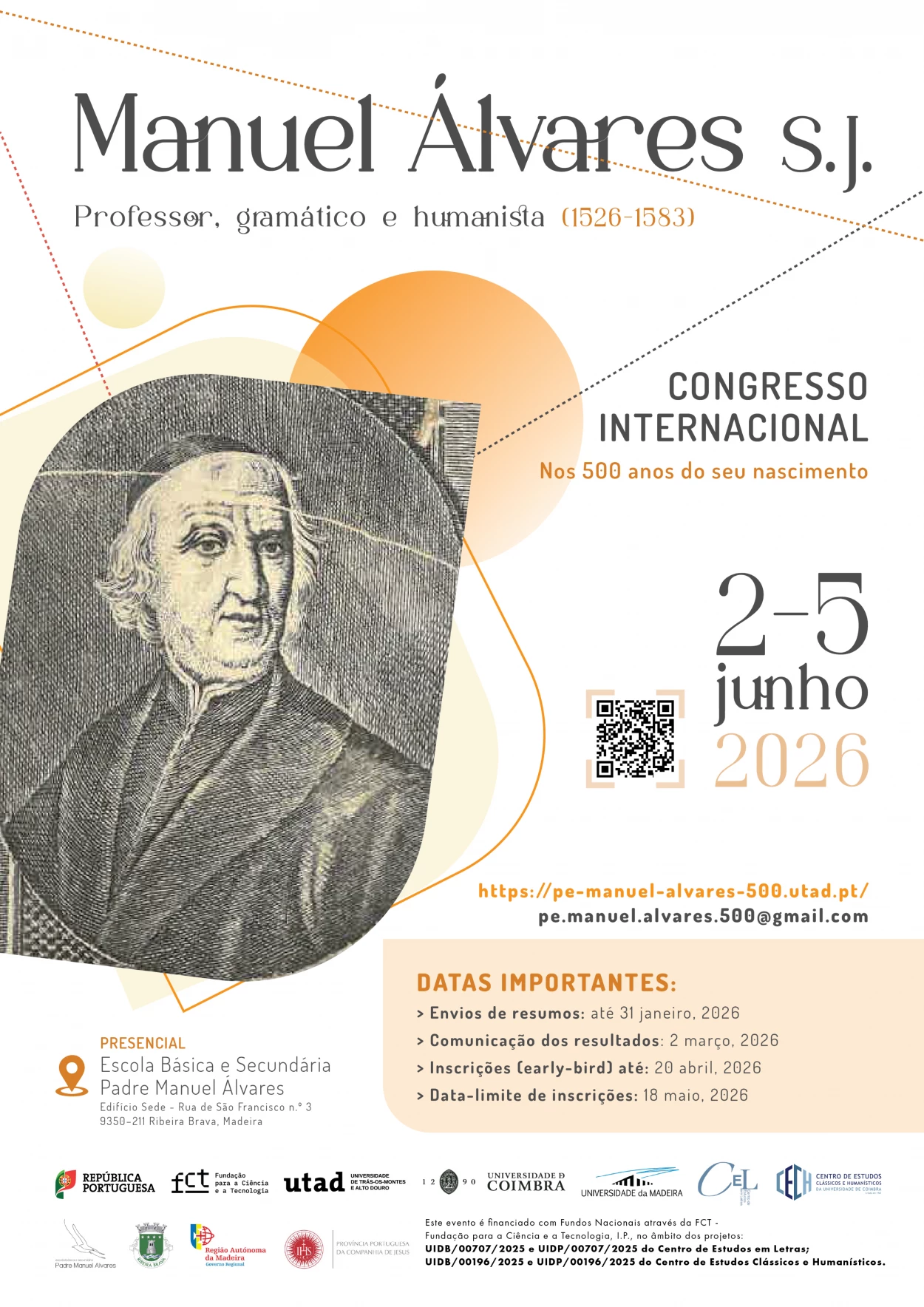June 2-5, 2026
> official website <
email: pe.manuel.alvares.500@gmail.com
Important information:
Results announced: March 2, 2026
Registration: May 18, 2026
Event date: June 2-5, 2026 | IN-PERSON
Escola Básica e Secundária Padre Manuel Álvares, Ribeira Brava (Madeira)
The 4th of June 2026 marks the 500th anniversary of the birth of one of the most influential figures in the history of European and worldwide grammar: Father Manuel Álvares, S.J. (1526–1583), a native of Ribeira Brava, on the island of Madeira. Author of the famous Latin-Portuguese grammar De institutione grammatica libri tres, first printed in Lisbon in 1572, Álvares is recognized as the most important Latin grammarian of the Modern Age, having his work been adopted as a normative model in Jesuit schools around the world for more than two centuries.
The celebration of the 500th anniversary of the grammarian’s birth is, therefore, a unique opportunity to revisit critically the monumental reception of his work in light of current paradigms in linguistic historiography, missionary linguistics, and the history of education. The conference, to be held in his hometown of Ribeira Brava, at the school which proudly bears his name, intends to bring together experts from different countries and disciplines, promoting a space for interdisciplinary dialogue on the pedagogical, cultural, historical, and linguistic projections of Álvares' legacy.
This conference, held under the patronage of the Regional Government of Madeira, the Municipality of Ribeira Brava, the Faculty of Arts and Humanities of the University of Madeira, Padre Manuel Álvares Primary and Secondary School in Ribeira Brava, the Center for Classical and Humanistic Studies (CECH), and the Center for Studies in Letters (CEL), aims not only to honor an internationally renowned historical figure from Madeira, but also highlight the central role of language, schooling/education, and grammar in the construction of cultures and identities. More than a memorial celebration, this meeting will be a moment of research and debate around one of the most enduring monuments of Western linguistic pedagogy.

